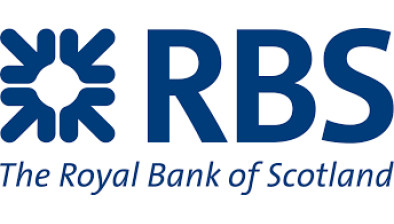RBS: Hiring activity increases at quicker pace in February

Sebastian Burnside
The Scottish labour market continued to recover from the effects of the COVID-19 pandemic in February 2021, according to the latest Royal Bank of Scotland Report on Jobs.
Hiring activity rose again, with quicker upturns in both permanent placements and temp billings recorded amid reports that businesses were adapting to restrictions and beginning to fill roles. Subsequently, demand for permanent staff increased for the first time in a year, while the latest rise in temp vacancies was sharp.
The supply of permanent candidates dipped slightly however, with panellists commenting that a number of candidates were reluctant to pursue new roles due to heightened uncertainty. Turning to pay, starting salaries rose at a much slower pace during February and neared stagnation, while the rate of temp wage inflation also eased since January.
Recruiters across Scotland registered another uptick in the number of permanent placements during February, with the increase accelerating to a solid pace. Panellists attributed the rise to greater demand for candidates as businesses continue to adapt to COVID-19 measures.
The rise in Scotland also contrasted with the UK-wide trend in February, where permanent staff appointments declined again.
February data highlighted a further upturn in the number of temporary billings across Scotland, thereby extending the current sequence of growth to six months. The rate of increase accelerated from January and was broadly in line with the series long-run trend. The expansion was also much stronger than that seen across the UK as a whole.
Adjusted for seasonal factors, the Permanent Candidate Availability Index registered below the neutral 50.0 mark in February, signalling the first reduction in permanent staff supply for nine months. According to respondents, many candidates were choosing not to move roles due to heightened uncertainty. That said, the rate of decline was only mild overall.
At the UK level, the availability of permanent candidates was largely unchanged on the month.
As has been the case in each month since April 2020, the availability of temporary candidates across Scotland increased during February amid reports that layoffs stemming from the pandemic had led to a greater number of people looking for roles. Although still sharp and faster than the UK average, the latest rise was the slowest in the aforementioned sequence.
Following modest increases in the previous two months, the seasonally adjusted Permanent Salaries Index registered only just above the no-change 50.0 mark in February. This signalled just a fractional rate of pay inflation, as permanent salaries came close to stagnating.
Nonetheless, this trend contrasted with that seen across the UK as a whole. Permanent salaries fell for the second month running at the national level.
A third consecutive monthly increase in temporary wages across Scotland was recorded during February. The rate of inflation was the slowest in this sequence, however, and mild.
At the UK level, pay rates for short-term staff were broadly unchanged in February.
February data highlighted a renewed increase in the number of permanent vacancies across Scotland, with the respective seasonally adjusted index ticking above the neutral 50.0 level for the first time in a year. That said, the increase was only mild overall.
Recruiters across Scotland registered another rise in the number of temporary vacancies during February, extending the current sequence of increase to five months. Moreover, demand for temp staff rose at a quicker pace than in January, with vacancies expanding solidly overall.
Sebastian Burnside, chief economist at RBS, said: “February data provided further positive signs for the Scottish labour market, as hiring activity continued to rise despite ongoing lockdown measures. Moreover, the upturns in both temp billings and permanent placements gathered pace on the month.
“With firms finding ways to continue operations in spite of restrictions, demand for workers increased during February, a clear sign that Scottish businesses are beginning to focus on growth opportunities when measures are eased.
“All in all, this is good news for job seekers. With more roles available, we should see further increases in placements over the coming months and if the trend continues, the labour market will make good progress in its recovery.”







